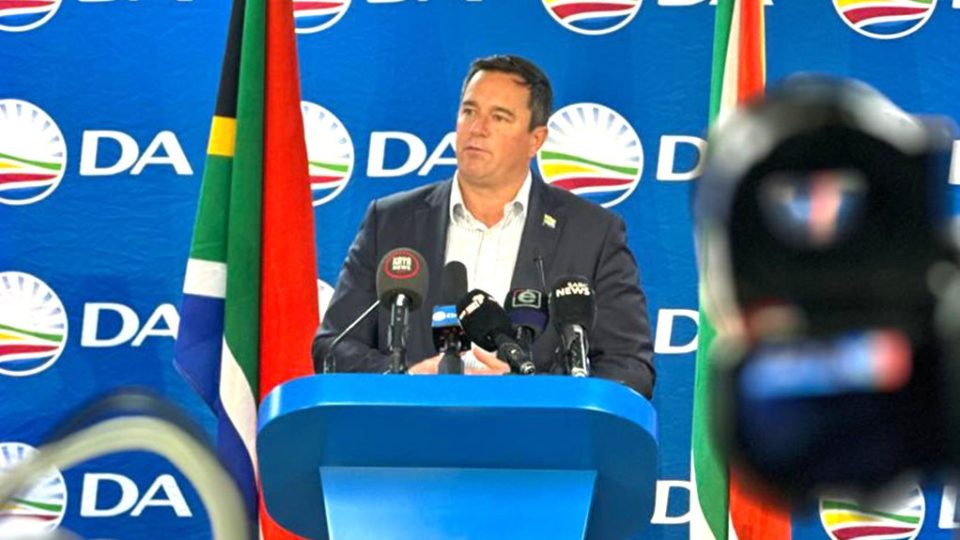THE future of South Africa’s government of national unity has been thrown into doubt after a key partner in the coalition voted against the 2025 budget.
Lawmakers passed the controversial fiscal framework on Wednesday by 194 to 182 with the main sticking point being an increase in value added tax (VAT).
The Democratic Alliance (DA), rejected the fiscal framework, together with opposition parties uMkhonto we Sizwe and the Economic Freedom Fighters.
The contentious budget will raise the country’s value added tax (VAT) by half a percentage point from next month.
It will be raised another half a percentage point in the following year, putting the rate of VAT at 16 per cent by 2026–2027.
VAT is payable on goods and services including food and electricity and the current budget has been criticised by opposition parties as “anti-poor” as it will raise the cost of living.
“Let’s update our facts. What are the facts? Comma five will generate R13.5 billion, right? What does our data tells us about VAT? Our data says VAT is paid by the three upper income categories,” said the minister of finance, Enoch Godongwana.
According to the latest budget, more than 20 million people in South Africa rely on welfare grants, with the country’s unemployment rate at just over 32 percent.
Amid slow economic growth and high unemployment rates, the 0.5 percent increase is estimated to generate about $800 million in revenue annually.
This could be used to fund the government’s health, education, and social services programmes.
The DA had called for Treasury to do more to fire up the sluggish economy and to review government spending.
Following the vote, it said it would challenge the budget outcome in court.
Godongwana said this raises doubts about whether it could stay in the coalition.
“I don’t think you can vote against the budget and tomorrow, you want to go and be part of its implementation? It can’t be. It can’t be. We’ve got to draw a line on that point,” he said.
The DA joined the unity government after the African National Congress (ANC) party lost its parliamentary majority last year.
Its vote against the budget put the already fragile power-sharing government on a collision course that could destroy the less than one-year-old coalition.
The power dynamics between the ANC and the DA have seen quarrels erupt at almost every turn as the parties navigate their ideological differences, particularly on issues like foreign policy, land reform, education and health sector reforms.
In February, the budget speech was postponed for the first time in the country’s democratic history as parties clashed over the VAT increase plans.
However, the government’s plans to increase VAT sparked outrage from civil society and other parties as well.
A small party outside the unity government, ActionSA, unexpectedly tipped the scales in favour of the ANC to pass the budget.
Image (DA’s leader John Steenhuisen says they will take the matter to court).

